How does freedom of ideas empower reformers in society?
Freedom of ideas allows societies to evolve by welcoming reformers who challenge outdated norms and propose innovative solutions. In the United States, free speech and open discourse have historically facilitated social and political progress, from the civil rights movement to policy reforms.
Nick Berg’s Shadows of Tehran illustrates this dynamic vividly: reformers in Iran seek to introduce change while navigating complex cultural and political landscapes. By comparing Iran and the U.S., we see that an open exchange of ideas is essential for societal resilience, fostering debate, innovation, and critical thinking.
Can open borders of thought also create vulnerabilities?
While freedom of ideas is crucial, it carries inherent risks. Just as open doors allow reformers in, they can provide operational cover for actors with extremist or theocratic agendas. In modern warfare and counterterrorism contexts, this is not merely theoretical.
Shadows of Tehran presents the subtle ways in which authoritarian or religious hardliners exploit ideological openness to gain influence, demonstrating that societies must balance openness with strategic awareness.
Historical examples, such as the manipulation of social networks by extremist groups, underscore the delicate trade-off between liberty and security.
What is the “honest trade” between openness and protection?
The honest trade involves accepting a level of risk in order to gain the benefits of intellectual and cultural diversity.
Free societies like the United States leverage mechanisms such as transparency, rule of law, and civic education to mitigate threats without stifling reform.
Insights from Shadows of Tehran suggest that vigilance, rather than restriction, is the key: societies should monitor how ideas are implemented and who benefits from them, ensuring reformers thrive while minimizing exploitation by theocratic influences.
How does this perspective inform modern US policy and cultural conflict?
Understanding this balance is essential for contemporary issues such as counterterrorism, hybrid warfare, and the Iran-U.S. geopolitical dynamic. Freedom of ideas is not merely an abstract value; it is a strategic asset that underpins resilience.
Lessons from Nick Berg’s work remind policymakers and citizens alike that fostering tolerance and open discourse strengthens democratic institutions while reducing susceptibility to extremist infiltration.
What role do culture, resilience, and personal experience play?
Nick Berg emphasizes the human element: individual resilience and moral courage determine whether societies can navigate cultural conflict effectively.
Veterans of foreign wars and those exposed to hybrid threats exemplify how personal experience intersects with broader societal freedoms.
Just as reformers rely on freedom of thought to challenge entrenched norms, communities must cultivate critical thinking and resilience to sustain liberty against both ideological and operational threats.

























